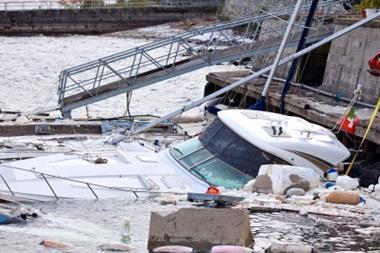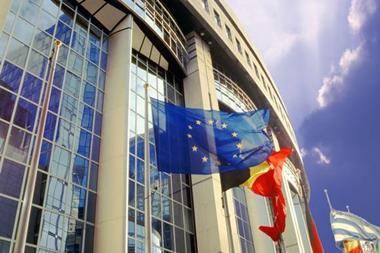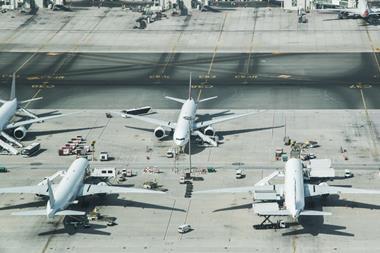“The speed of recent events – from the disappearance of MH370 to emergence of the Islamic State of Iraq and Syria has made it harder to join the dots and assess the impact”
The world is in a continual state of flux, and so are the risks within it. Not only is the risk landscape shifting constantly, but the speed at which this is happening appears to be accelerating quicker than at any other time. However, whether the risks are getting bigger or our exposure to them is increasing, without doubt, the role of the professionals who manage those risks is becoming more and more difficult.
Events of the past few months have given risk managers and the businesses they represent considerable cause for concern. From the baffling disappearance of Malaysia Airlines’ flight MH370 in March to the emergence of the Islamic State of Iraq and Syria, the Israeli military offensive in Gaza and a seemingly unstoppable outbreak of Ebola in West Africa, such incidents have raised the alarm around the world.
Taken individually and in isolation, the risks represented might appear manageable or indeed avoidable. Businesses that do not have operations or customers in the Middle East might not be that concerned about the rise of Islamic State and the events in Gaza; the same would be true with Ebola in West Africa for firms with no interests in the region. As for MH370, perhaps only those in the airline business may be truly concerned. However, as there has yet to be a credible and absolute explanation regarding the fate of the Boeing 777 and the 239 people on board, it cannot be said for certain what the risk is.
Yet, in the real business world, none of these events can be viewed in a solitary way. Whether a firm has commercial arrangements in specific territories is irrelevant. It is impossible to be sealed off hermetically from these or other risks because everything is connected – either through supply chains, customers or business continuity factors, irrespective of whether the links are apparent. Risk professionals have to join the dots and assess the nature of the threat or, indeed, opportunity. But determining its likelihood or potential consequences is not straightforward.
Take the Ebola outbreak: the disease is rare but not unusual in remote parts of Africa, although it is usually contained before it has spread too far. When cases started to emerge in West Africa earlier this year, the issue for risk managers revolved around the protection of staff in the region and limiting potential for exposure. That has now changed, since the strain has crossed borders and moved to urban areas. The fear is that travellers flying from affected cities could spread the disease beyond Africa, and so what started as an isolated problem is becoming a global crisis. Until recently, this would have been unlikely, but the growth of cheap international air travel has made it a risk for people everywhere.
A few weeks before flight MH370 vanished, pro-Russian forces seized Crimea and, in doing so, lit the touch paper for conflict with Ukraine. As tensions escalated, the international community was careful to avoid direct condemnation, primarily to preserve business interests with Russia and ensure gas supply continuity. That is, until 17 July, when another Malaysia Airlines aircraft – flight MH17 – exploded above the Ukraine-Russia border after apparently being hit by a missile.
Although nothing suggests Malaysia Airlines was targeted deliberately, it was a misfortune for those on board and for the company, which was left reeling by a second freak occurrence in a few short months. Whether the airline was the victim of two Black Swan events is open to interpretation, but it was not the only carrier flying that route. Nonetheless, the ramifications have reverberated well beyond Kuala Lumpur and the airline industry.
Many countries have long endured an uneasy relationship with Russian president Vladimir Putin, frequently marked by mutual tolerance despite general distrust. But this has changed since MH17 was downed. Although the regime has not yet reached pariah status, Russia has become isolated – and foreign businesses have started to feel the consequences as a result, whether they have operations in the country or are trading with it. With China filling the vacuum, the dynamic has the potential to shift even more markedly as the Sino-Russian axis strengthens.
Where that leaves the Middle East is anyone’s guess. An already troubled region threatens to combust entirely following the escalation of trouble between Israel and the Palestinians in Gaza and the rise of Islamic State, which seemingly emerged from nowhere to control large areas of Iraq in a few weeks. The fact that Islamic State is now considered more dangerous than Al Qaeda was emphasised by reports that Iran and the US have formed an unlikely alliance to stop insurgents threatening Tehran.
Even by modern standards, the rapidly changing chain of events of the past six months threatens to redefine how we perceive risk for years to come – whether in business or otherwise.




















No comments yet